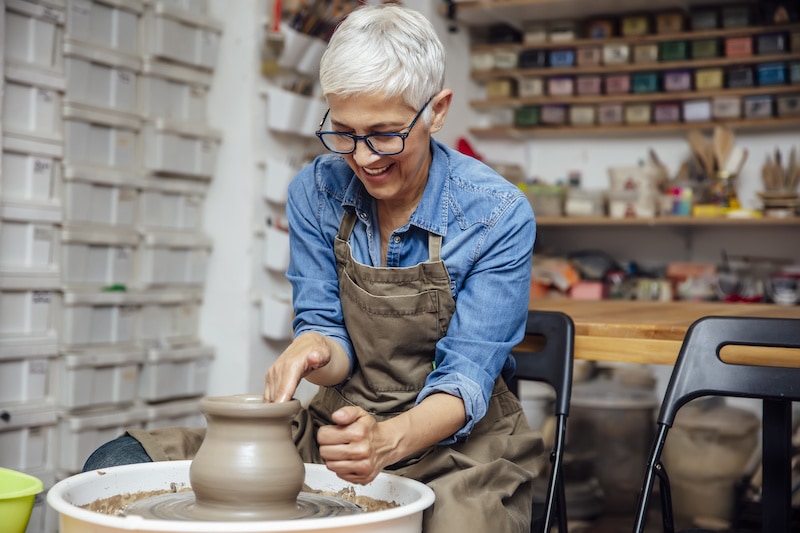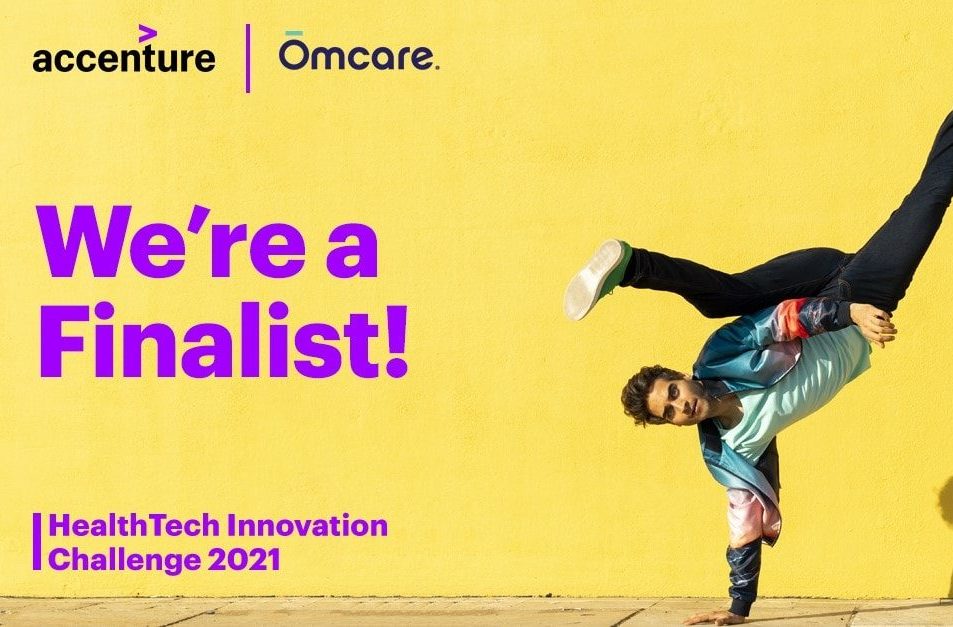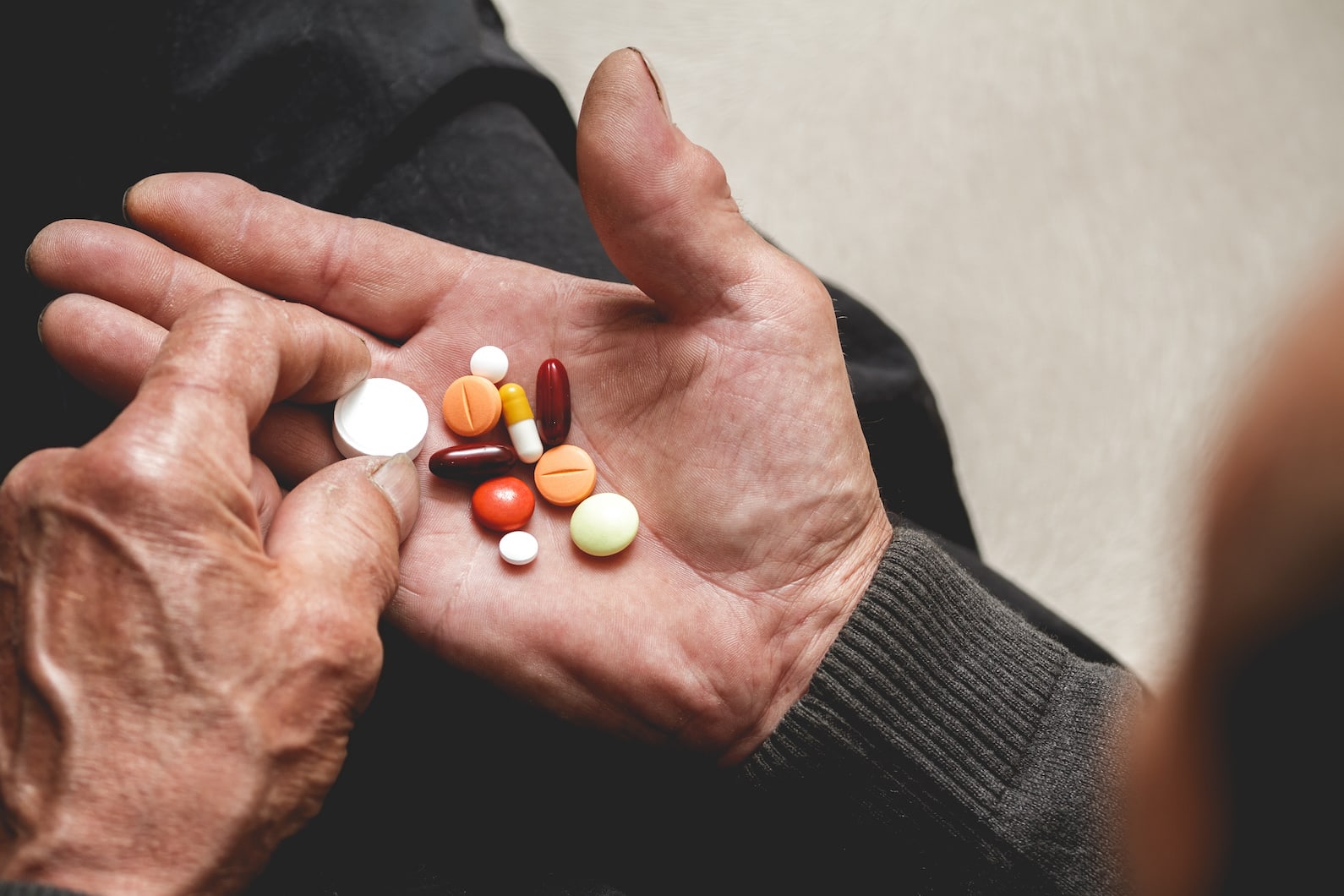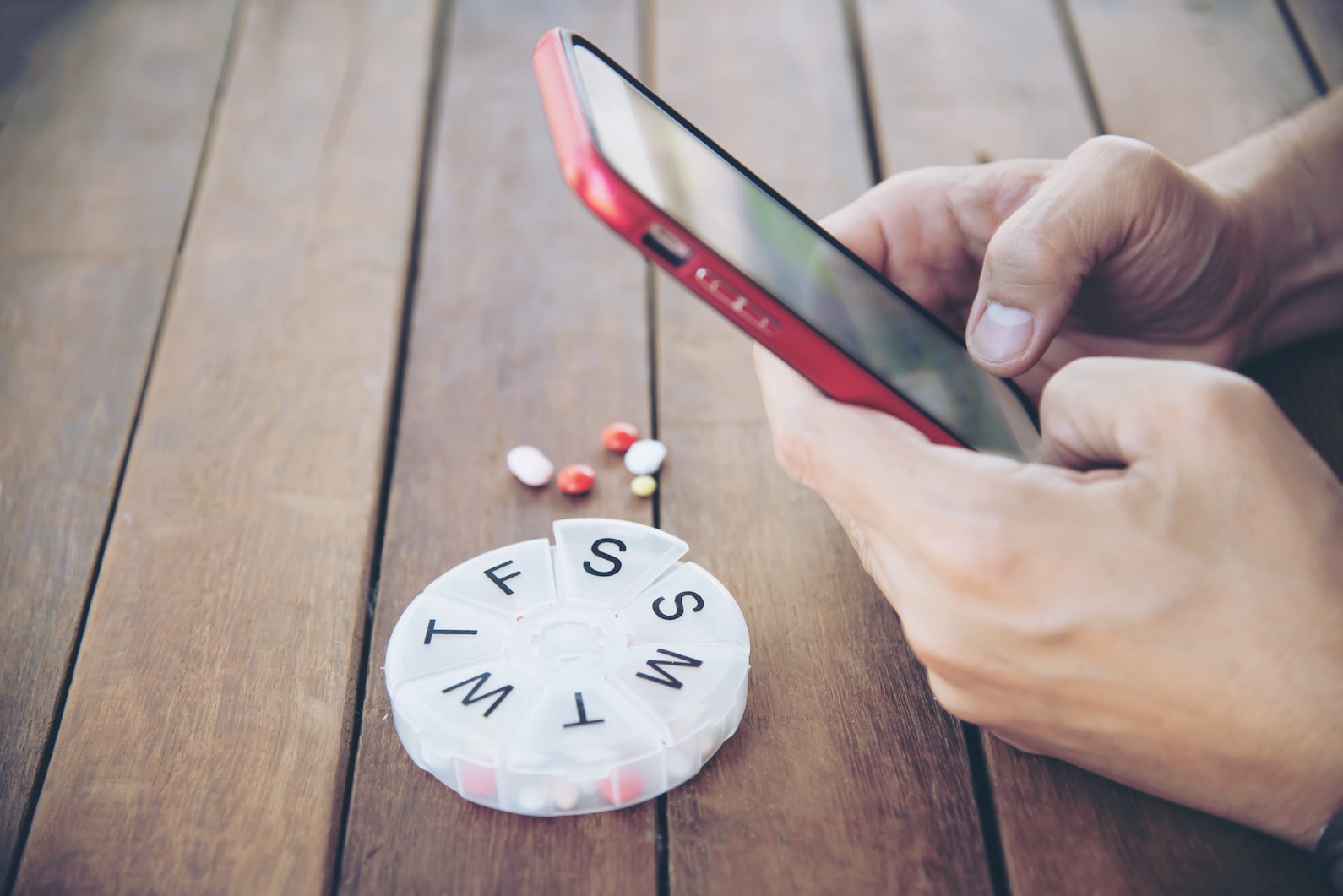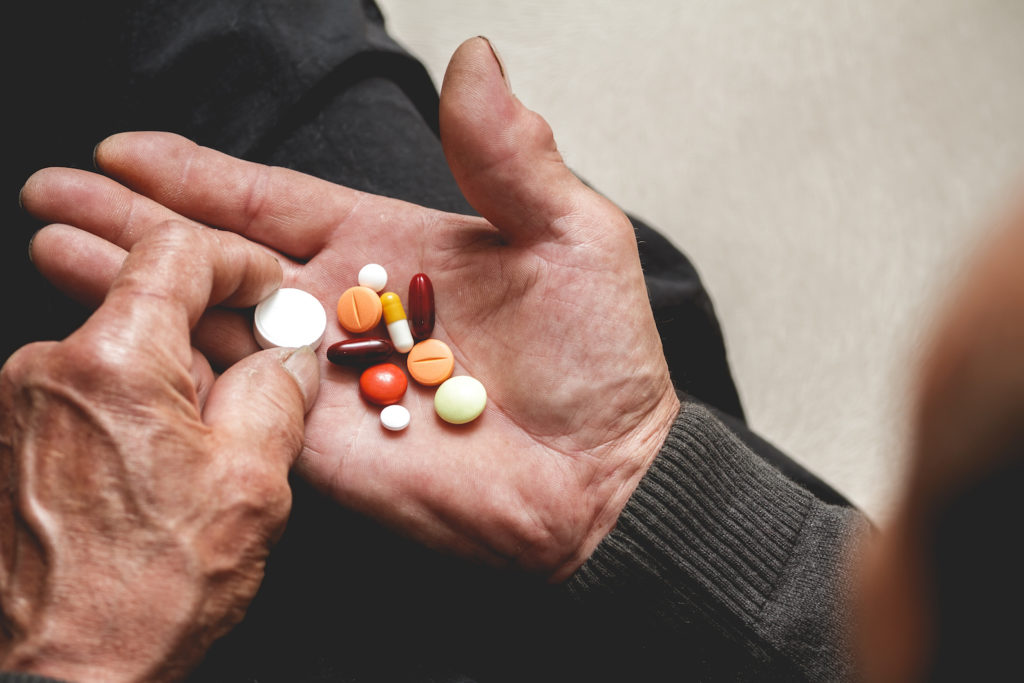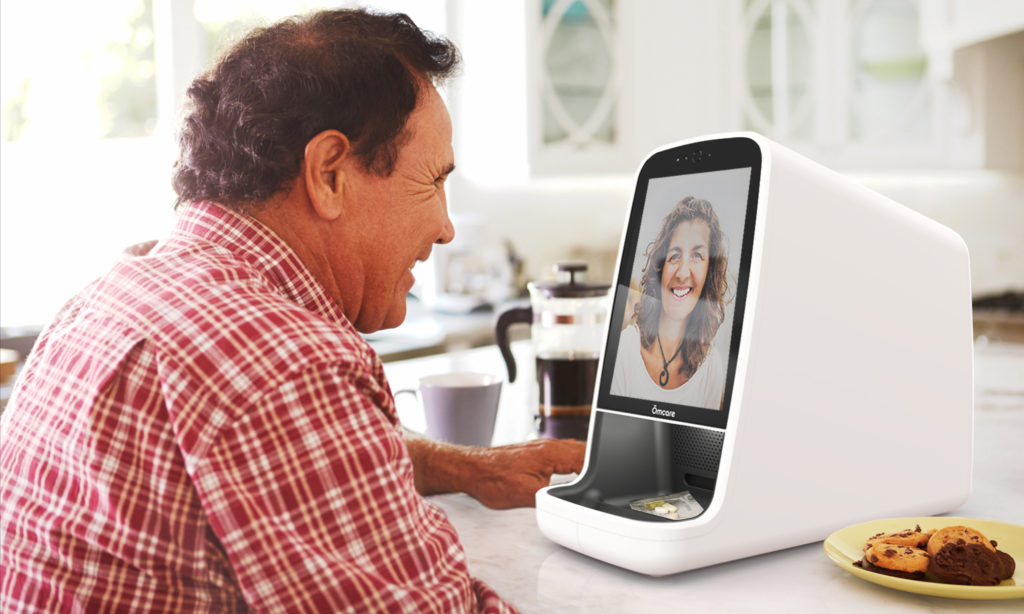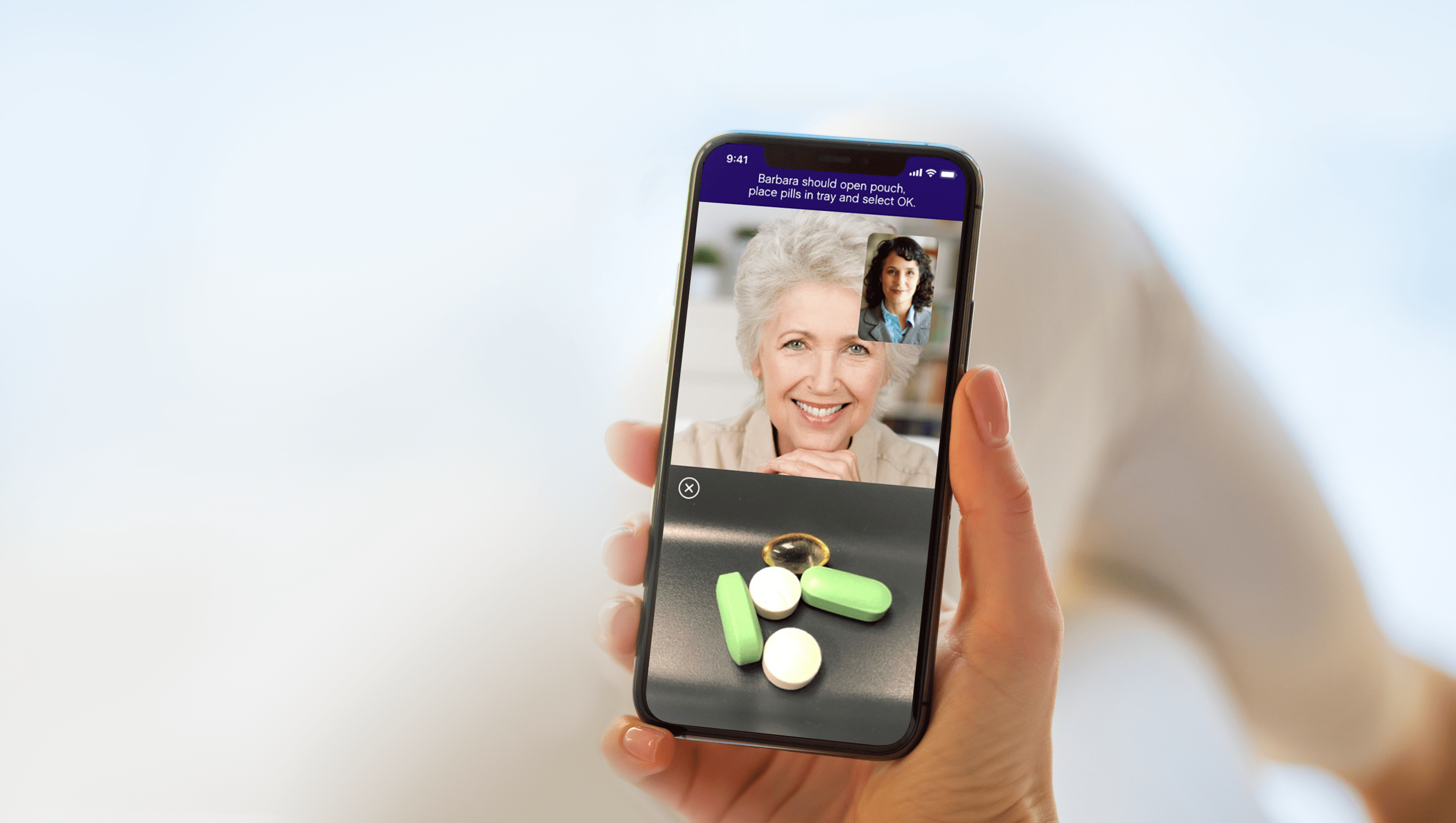Ōmcare joins fellow home health leaders to discuss the future of care
October 13, 2021Press,Age TechPress Releases,News
Minneapolis: October 13, 2021 – Ōmcare will join leaders in home health for the 5th Annual ConVerge2Xcelerate 2021 Symposium (#ConV2X) held November 9 – 11. The symposium will feature U.S. home health leaders to discuss advancing business critical regulation and policy reforms, market gaps, and the future of this burgeoning industry sector.
ConV2X 2021 is the acclaimed health technology modernization symposium focusing on health policy, telehealth, blockchain and artificial intelligence and connectivity in a refocused healthcare market. It is the premier destination community identifying new and cost-effective paths forward through real world evidence, strategy, operations, research & trends, where healthcare leadership and breakthrough technology providers inspire and guide informed decision making for niche markets in the exploding digital health marketplace.
“We are continually seeing the conversation become more prominent around getting care into the home. Aging in place not only allows individuals to maintain their independence for longer, but it’s a cheaper way to still provide high-touch care. Ōmcare is honored to join other companies that are helping win the home and provide even better care, at a lower cost, that also relieves burden on the healthcare workers shortage.” Lisa Lavin, Ōmcare CEO and Founder.
To understand how technology is empowering peace of mind in the home, sign up for the virtual conference today.
About Ōmcare
Ōmcare is a digital health company pioneering an open access, home health platform that allows healthcare organizations to extend care into the home via a secure telehealth infrastructure and integration with their patented medication dispensing technology. Based in Burnsville, MN, Ōmcare enables remote delivery of wrap around care coordination and integration of existing virtual care and remote patient care solutions, promising real medication adherence defined as right med, right time, right person. Ōmcare is currently in pilot and experiencing promising results.
6 of the best medication delivery companies compared (2021 update)
October 12, 2021Age Tech,Senior CareBlog
Today we can get just about anything delivered. Do you want Mcdonald's delivered at 2 am? No problem, order DoorDash. Do you need to furnish your new home but don't have a truck to haul furniture? No worries, Slumberland will deliver everything to your door (and carry it inside)! But what about medication?
Pharmacies have long offered prescription delivery services but with less-than-convenient times and offerings. Thankfully, that has changed significantly in the last decade to the point where there are dozens of prescription delivery service companies to choose from. Choosing one can be overwhelming, so we thought we'd help by narrowing down a list of the best medication delivery companies in 2021.
PillPack
PillPack is one of the most popular names in prescription delivery, and even more so after being purchased by Amazon Pharmacy in 2019. PillPack has changed the game when it comes to medication management. They offer free home delivery, and users only pay for their med copays, PillPack takes care of the rest.
After signing up, users send in their medication details, then PillPack works with their doctors or pharmacies to sort out all prescription and non-prescription items (like vitamins and supplements). Then, everything is delivered in conveniently packed daily pouches. It's easy, affordable, and convenient.
Capsule
Capsule currently only delivers to 13 major cities around the country, including the Twin Cities (and their surrounding zip codes). Still, they are well on their way to becoming one of the most used prescription delivery services around. Capsule offers same day delivery of your prescriptions, even if you're a new customer.
They have pharmacists who care and want to make it as easy as possible for anyone to get their medications delivered to their door with no hassle. Capsule can become your new pharmacy with the help of your doctor and accepts any insurance.
ExactCare
ExactCare is one prescription delivery service that goes beyond just convenient home deliveries. They also partner with nursing homes, home health workers, and manufacturers to create a more well-rounded medication management system and help improve patient health outcomes.
In addition to packaging and delivering medications to your home, ExactCare also provides comprehensive support services to ensure your medication is managed and adjusted to be as effective as possible, especially when treating chronic diseases.
ZipDrug
Recently merged with IngenioRx, ZipDrug is making huge advancements in medication adherence and prescription care for patients with chronic conditions. However, they are opposed to common industry issues like Medicare Advantage patients being prescribed the most expensive option, more recurring medications, and paying way too much in general. So, ZipDrug steps in and connects people with the best, most affordable pharmacies in their area who work best for their health plans and their care.
They even reward pharmacies who take steps toward improving medication adherence in patients who get drugs delivered by ZipDrug. It's a win-win for everyone and provides beneficial pharmacy services on the go.
DivvyDOSE
DivvyDOSE is very similar to PillPack since they package all of a patient’s medications into one neat daily pouch that you can just open, take your meds, and go on living your life without worry. The convenience factor is huge, not to mention free delivery, free packaging, and they accept all major health insurance plans.
With DivvyDOSE, you'll never run out of refills because they remind you and take care of contacting your doctor. They will also include a small medication card that fits into a wallet, so no matter where you are, you always have your most up-to-date script info.
Simple Meds
A small team with a big purpose, Simple Meds is adding to the top contenders changing how prescription drugs are managed for good. No one should have to worry about how or when their prescriptions are getting filled. With Simple Meds, members get simple, easy medication management with no hidden fees.
 Finding the Best for You
Finding the Best for You
Many similar companies are paving the way for better and more advanced medication adherence efforts. Most companies will work with your insurance company, get your prescriptions filled, and deliver them right to your door, hassle-free. But these companies mentioned above have proven to be some of the best in the industry, and we're excited to follow where they go.
Of course, we'd be remiss not to mention Ōmcare's efforts to improve medication management as well. For example, our convenient prescription delivery service ensures our Home Health Hub stays fully loaded with proper daily dosage in easy-to-open pouches, shipped out every single month. For more information on how Ōmcare can help you or your loved ones get their prescription dispensed on time with convenient delivery, reach out today.
Healthcare worker shortage forces creativity to deliver care more efficiently
September 22, 2021Senior CareBlog
There is currently a massive shortage of healthcare workers across the nation, at all levels of care. However, the extremes are hitting facilities, like nursing homes and assisted living facilities, which rely on lower or non-credentialed health care workers to assist nurses and doctors day-to-day.
Some lower credentialed positions struggling to stay staffed include medical assistants, home health aides, and pharmacy technicians. The National Community Pharmacists Association (NCPA) conducted a survey in June 2021 that showed some astounding statistics about the state of the nation’s pharmacies.
Currently, four in five pharmacies are struggling to staff enough workers to handle patients, deliver prescriptions, and simply manage the cash registers. There are many reasons for this including people leaving positions (during the pandemic) where they are exposed to more people or finding work elsewhere for more pay, but also the growing aging population is heavily affecting the need for healthcare workers.
What is driving the healthcare worker shortage?
The baby boomer population makes up nearly a quarter of the entire population of the United States. This population is now reaching the age where they have higher healthcare needs, and it’s not slowing down any time soon.
The United Nations put together a document on world population aging, and there are some pretty astounding statistics regarding growth and trends.
- By 2050, people 60 and older will make up 25% of America's population.
- The global population of people 80 and older is projected to triple between 2017 and 2050.
- The U.S. birthrate dropped by 4% in 2020, and it's expected by 2030, older persons will vastly outnumber children ages ten and under.
As these older generations continue to grow, the need for healthcare does as well. And with many people leaving the healthcare industry and not being replaced with incoming workers, the shortage continues.
How can the industry combat these shortages?
One of the biggest issues with these lower-credentialed jobs is low wages (not to mention the competition from other industries right now). Based on labor statistics data in the state of Minnesota, a personal care attendant (PCA) is one of the most in-demand jobs, but the median annual wage is $28,562 per year.
The government is doing what it can to help with the healthcare worker shortage, but that does not seem to be enough. A recent proposal from Minnesota Governor Tim Walz is urging the healthcare industry to increase wages for home care workers. Unfortunately, the care service clients with PCAs receive are funded by Minnesota’s Medicaid program. This means the rate the state will pay for services is completely dictated (and capped) by the state Legislature—these low rates barely cover the cost of care. So how will they ever be able to pay home health aides more?
Another way the industry is combating this huge shortage is by hiring people with more experience working in the healthcare field, but for lower-level positions. A new market has popped up for those who have been retired from their career of being a nurse, doctor, or medical assistant and want to get back into the workforce as an on-call position that will work within certain hours they can accommodate.
That trend may become one of the more popular ways to fill the gap in lower-level healthcare workers, but it's not an ideal situation due to higher costs and unnecessary credentials. There are other ways to fill these gaps in the health care workforce and help alleviate the worker shortage.
One way is to introduce technology and other automation to ensure at-home care is never sacrificed due to staffing shortages, for example, technology services like Doctor On Demand. Doctor on Demand allows patients to quickly and easily get standard checkups and prescription refill appointments over video chat, from the comfort of their homes.
How Ōmcare helps
Ōmcare is a hardware and software solution that helps alleviate the need for in-home nurses, especially for older individuals who need consistent medication management. After installing a Ōmcare Home Health Hub in a patient’s home, an uncredentialed worker can make calls, cheaply and efficiently, multiple times a day to walk a patient through medication management.
The Ōmcare Home Health Hub allows for health workers to scale their time, instead of running from home to home, while still providing high-touch and seamless care. If you’re interested in integrating a Home Health Hub into your patients' homes and alleviating the burden on your care staff and HR hiring team, contact us today for more information.
Risk adjustment: what is it and how does it impact Healthcare for 2022
September 16, 2021Medicare AdvantageBlog
Risk adjustment is one tool that helps determine insurance eligibility and premiums, as well as reimbursements for providers. It allows insurance providers to compare members and determine which ones have higher risks of developing certain conditions or require more care than others. This information can then be used by regulators for setting appropriate reimbursement rates for different providers.
So, beyond that what exactly is risk adjustment? Why does it matter? And why will it continue impacting the way we approach health costs over the next several years?
What is the purpose of risk adjustment?
The official definition of risk adjustment, according to HealthCare.gov, is “a statistical process that takes into account the underlying health status and health spending of the enrollees in an insurance plan when looking at their health care outcomes or health care costs.”
To understand risk adjustment, you first need to know how it is calculated. The calculation of an enrollee's risk score begins with their demographics and HCCs; a.k.a. the medical codes for their conditions.
To make sure that insurance providers are reimbursed fairly and accurately for services rendered, every member ends up with a unique risk score based on various demographic factors (such as age) combined together from predefined categories called Hierarchical Condition Categories or "HCC".
The demographic factors used to calculate risk scores include:
- Age
- Sex
- Socioeconomic data
- Disability status or eligibility
- Medicaid eligibility
- Institutional status (nursing homes, inpatient care, etc.)
The demographics are paired with an enrollee's list of diagnoses. These codes have all been assigned a specific value for risk adjustment. They're part of the standard ICD-10 coding system used in healthcare -- which assigns codes to every diagnosis based on many factors like severity, location, and condition.
HCCs with lower numbers are higher in severity on the scale and thus would raise someone's risk score. For example, diabetes that is well-managed with no complications would have an HCC of 19, while diabetes in full ketoacidosis would be an HCC 17, which is more severe than the 19. These numbers, paired with the demographic information, would determine how much risk adjustment is necessary for this enrollee.
HCCs and demographics are the two factors that might most affect someone's premium and eligibility in some medicare plans. In addition, people without chronic conditions might have more fluctuation in their risk scores due to diagnosis changing year over year. Still, those who require consistent treatment will likely remain in a high-risk adjustment program.
What are risk adjustment factor scores (RAF)?
Risk Adjustment Factors -- known as RAFs -- are the average risk scores for specific HCCs. They're used in combination with demographics to determine an individual's final risk score. The higher a person's RAF, the more likely it is that they'll end up in high-risk adjustment programs or see increased premiums due to their diagnosis and demographic information.
Health plans use special algorithms paired with patient RAF scores to predict costs. Patients with multiple chronic conditions would have a higher RAF score, thus likely having more healthcare needs with higher costs.
Why does this matter? Since risk adjustment is a calculation that takes into account both demographics and the severity of an enrollee's diagnosis, HCCs will have more of an impact on premiums than ever before.
There's no doubt that risk adjustment will continue to be a complex topic for healthcare professionals and insurance providers alike as we enter 2022. There are still many questions as to how this will play out in the future of healthcare, but there's one thing that seems clear: risk adjustment is going to have a very real impact on every aspect of care and coverage moving forward.
Patients with high RAF scores can always apply for a Medigap or Medicare Supplemental Insurance plan to offset added costs not covered by their Medicare plan. In 2021, there are ten different types of Medicare supplemental plans (Medigap) available in most states. Each is indicated with a different letter: A, B, C, D, F, G, K, L, M, or N. A Medigap policy would help people pay remaining healthcare costs like deductibles, coinsurance, or copayments—in other words, fill the gaps that aren't covered by Medicare plans.
What are the three risk adjustment models?
Depending on the situation, there are three different ways to adjust for risk. Each model has a different purpose and goal in mind.
CDPS — Chronic Illness and Disability Payment Systems
The first model is called CDPS and is used by state Medicaid programs for making capitated (fixed) payments to Medicaid HMOs for disabled enrollees. It may also be used for TANF (Temporary Assistance to Needy Families) for short-term assistance.
There are some precise characteristics of the CDPS model that make it stand out from the others. These are:
- There are 20 hierarchical categories of diagnoses that group them by body system or diagnosis type.
- A focus on those who need the most care.
- Each category has subcategories that showcase their degree of expenditure, affected by the severity of the diagnosis.
- Hierarchies are applied to every major category and count only the highest cost diagnosis. For example, if someone had two conditions under the cardiovascular category, the higher cost condition would be counted.
- Patients can have multiple diagnoses across different categories.
- This model has been adjusted multiple times to account for changes in medical coding.
 HCC — Hierarchical Condition Category
HCC — Hierarchical Condition Category
There are actually two forms of HCC: CMS and HHS. The CMS-HCC was developed after a mandate via the Balanced Budget Act of 1997 to adjust capitation payments based on its enrollees’ health status and demographics. Meanwhile, HHS-HCC came as a result of the Affordable Care Act. It intended to stabilize premiums for health plans offered on and off the Health and Humans Services health plan exchange. In addition, this model allowed for states who didn't want to operate their own risk adjustment program to use the HHS risk adjustment program.
CMS-HCC
- Hierarchies are applied so that only the most severe or highest cost diagnosis is counted in each category—similar to the CDPS model.
- All diagnosis codes are organized into 805 diagnostics groups, which are then organized into 189 conditional categories for a broad picture view.
- The variables that most impact one's risk adjustment are: disability status, low-income status, Medicaid, the reason for entitlement, age, and sex.
- They utilize prospective modeling, meaning they use previous year data to predict cost in the current year vs. concurrent modeling, which uses current year data.
- They use an additive model where multiple categories can be added together to determine risk.
- This model uses separate calculations for long-term care vs. new enrollees.
- There is an entirely separate risk model for enrolled with ESRD (end-stage renal disease).
HHS-HCC
- HHS-HCC is the newest model, implemented in 2014.
- They work on a risk pool model, meaning its budget-neutral by transferring funds from low-risk plans to high-risk enrollee plans.
- Again, only the most severe or highest-cost diagnoses are counted.
- Age and sex are the demographics that most affect risk scores.
- This model uses a concurrent model, using current year data to predict this year's costs, unlike the CMS-HCC that uses prospective modeling.
- This model includes 127 out of the 189 conditional categories that best predict expenses, focusing more on chronic diseases.
- Depending on the plan level (platinum, gold, silver, bronze, catastrophic), there may be separate calculations due to plans' varying actuarial value. Actuarial value is the total average of costs for covered benefits. For example, if a plan has an actuarial value of 80%, it means the enrollee is responsible for the remaining 20% of costs on all covered benefits.
ACG — Ambulatory Care Groups
Lastly, the ACG model was developed with a completely different approach than the other two. This model assigns diagnosis codes using 32 ambulatory diagnostics groups based on how the condition might affect an enrollee's health and resource needs. For example, the likelihood of disability, reduced life expectancy, or needs for specialists, therapy, or hospice care is all highly considered under this model. This model is often referred to as the Case Mix model because it is used for both risk adjustment and research.
 Risk Adjustment and Healthcare
Risk Adjustment and Healthcare
Risk adjustment allows for proper cost adjustments as well as setting a standard of premiums for high-risk enrollees. This is because people who are sick or have chronic conditions will be more expensive to treat than someone with few or no health issues. Overall this risk adjustment aims to provide the appropriate funding based on the severity of an enrollee's health condition.
It's a complex system that plans and providers need to have a plan for in order to create budgets properly, adjust plan coverage, and give enrollees the best possible care options. The Ōmcare Home Health Hub allows plans and providers to manage their risk by capturing RAFs (risk adjustment factors) over telehealth visits and ensures medication assistance, leading to healthier outcomes.
We are trying to make chronic care easier and more effective by allowing flexible, at-home care. If you have any questions regarding risk adjustment or bettering care for high-risk patients, reach out to us today!
Senior health: 11 tips for aging well
September 9, 2021Senior CareBlog
There are many ways that you can strive towards staying healthy and active as you age. A combination of diet, exercise, and mental wellness can help us age gracefully and maintain our independence for longer. These health tips can help you or your aging loved ones to feel better, longer.
Tips for aging well in 2021.
As you get older, your minds and bodies change, and it becomes more critical than ever to take care of yourself. Here are some tips for successful senior health management and ensuring a long, happy, healthy life.
Maintain a healthy diet
While it may be harder to maintain a good diet for older adults, senior health experts agree that a good diet is one of the most important factors in health outcomes. Everyone needs food A high in vitamins and protein for strong bones and muscles, which means eating plenty of lean protein sources (chicken, turkey, and fish especially), fresh produce, whole grains like brown rice or quinoa, beans, or other legumes. Studies show a healthier diet for older adults can improve cognitive function and disease control.
Taking supplements
As you age, there are critical nutrients the body becomes depleted of. Be especially cognizant of your levels of each nutrient below and talk to your doctor about supplementing if necessary.
- Vitamin D is essential for boosting the immune system.
- Vitamin C is an antioxidant that helps improve the overall function of our bodies by boosting vitamin absorption, wound healing, and aids in vision and organ function.
- Calcium is essential for bone and teeth health.
- Vitamin A is good for heart, lung, and liver health.
- B Vitamins must be replaced as you age because our bodies become less efficient at absorbing B vitamins from the foods we eat. B12 deficiency can negatively affect brain function and only increases our chances of memory loss, high blood pressure, and nerve pain.
Get regular exercise
Specific exercises and specialized training may be better than others, depending on your health or any chronic pain. For example:
For those who experience joint pain, walking or swimming at low-impact levels can still help strengthen muscles without putting too much pressure on the joints. Even just daily walks around the block can make a big difference in senior wellness. Aerobic activities like dancing or yoga have been shown to improve mood, which also helps fight chronic illness symptoms like depression and anxiety. If mobility is an issue, tai chi classes where movements are done slowly with concentration can be easier on the body while being both meditative and strengthening.
Focus on mental wellness
Mental health in the elderly can be a big issue that often gets left behind. Mental health is severely affected by the loss of loved ones, feelings of isolation, and the physical and mental changes that come with aging. Talking about it in therapy, or with loved ones, or even acknowledging feelings of anxiety and depression can be the right step towards mental wellness.
Hobbies for keeping busy
Staying busy can help alleviate feelings of loneliness and boredom, especially for older patients living in a senior healthcare facility. Some hobbies good for seniors include arts and crafts, painting, playing card games, or even gardening on the property. Doing things they once enjoyed may not always be an option for them, so finding fun hobbies to pass the time can be a crucial component to maintaining overall wellness in seniors.
Caring for skin and teeth
Dermatologists always say the best skincare in your 50s is proper skincare in your 20s. Unfortunately, we can't turn back the clock on our skin but can always do things to maintain it and keep it healthy. The number one thing seniors should do to protect their skin is to wear sunscreen every day. Skin cancer is prevalent in older adults, especially those who did not wear sunscreen consistently throughout their lives.
And as you age, you lose a lot of collagen, making the skin thinner and more susceptible to wounds and sun exposure. Teeth can also decline in health, and many seniors end up opting for dentures for ease. However, eating healthy, brushing regularly, and taking the proper vitamins can slow down the deterioration of skin, nails, and teeth.
Getting better sleep
Older adults often experience sleeping problems. This could be because of medications affecting sleep quality or health conditions like arthritis pain or acid reflux that can keep them up at night. If you're having trouble falling asleep at night, talk to your doctor about calming methods and supplements that may work for you.
Hydration!
Drinking enough water is essential for human life. Drinking water helps hydrate your skin, organs and improve bladder and digestive health. The elderly are very prone to dehydration, so ensuring they get at least 64 ounces of water every day (the eight glasses of 8 oz. water rule) can help prevent ailments and boost overall health.
Staying social
The psychosocial changes of growing old can be detrimental to someone's health. Many older adults may find it hard to maintain friendships or go to the social events they once did before they dealt with chronic illness or pain. However, socializing is a normal part of life, and without it, one can feel more lonely and depressed, which can actually lead to more medical problems. Therefore, caregivers and elderly care facilities need to make sure they keep a full calendar of social events that everyone can enjoy together each week—from bingo to dances to playing cards.
Routine medical care and tests
Regular health maintenance and prevention are vital to better health outcomes. There are some routine tests and treatments that can significantly improve the health of older individuals by ensuring their care plan is appropriate and catching any issues early before they become worse.
- Get vaccinated for influenza, pneumonia, and shingles (if applicable)
- Regular cancer screenings (breast, colon, prostate)
- Bone density scans for osteoporosis
- Blood pressure readings
- Check blood sugar levels to check for diabetes
- Lipid screening
- Check for high cholesterol and other blood tests
- Annual physicals
Additional safety measures
Elderly patients may face balance problems that require advance care planning to ensure they don't fall and injure themselves. Using a walker, wheelchair, and installing handrails in rooms or hallways can ensure they always stay safe while moving about.
By following these tips, you can go on to live a long, healthy life and address health concerns before they become chronic health conditions. Here at Omcare, we believe a healthy lifestyle is possible no matter what age, and you can enjoy living longer by focusing on better health outcomes and wellness early on.
Ōmcare named a finalist in Accenture HealthTech Innovation Challenge
August 30, 2021Press,Age TechPress Releases,News
“We are thrilled to be named a finalist and recognized as a company poised to transform how care is delivered in the home. Ōmcare is committed to helping seniors age where and how they want, lower the cost of care, and enable better outcomes. It's an honor to be included with seven other companies who are as committed to innovation”
- Lisa Lavin, CEO and Founder
Minneapolis: August 30, 2021 – Ōmcare has been named a finalist in the Accenture HealthTech Innovation Challenge, which brings together leading-edge startups with prominent health companies to tackle some of North America’s greatest health challenges.
Attracting more than 2,600 startup applicants in the past five years, the Accenture HealthTech Innovation Challenge supports finding innovative approaches and solutions to help create better healthcare access, experiences and ultimately outcomes for all people.
“The finalists are emerging businesses that are reimagining the healthcare experience to provide people with the convenience and personalization they are accustomed to receiving with other industries,” said Brian Kalis, managing director of digital health and innovation services at Accenture.
The finalists are:
The finalists will participate in the final round and awards ceremony at a virtual event to be held on September 28, 2021. The judging panel will comprise executives from globally recognized health and venture capital companies, providing the finalists with exposure and access to industry-leading experience to help bring their ideas to market.
About Ōmcare
Ōmcare is a digital health company pioneering an open access, home health platform that allows healthcare organizations to extend care into the home via a secure telehealth infrastructure and integration with their patented medication dispensing technology. Based in Burnsville, MN, Ōmcare enables remote delivery of wrap around care coordination and integration of existing virtual care and remote patient care solutions, promising real medication adherence defined as right med, right time, right person. Ōmcare is currently in pilot and experiencing promising results.
Medicare star ratings: how they work + how to compare plans
August 9, 2021Medicare AdvantageBlog
Medicare star system
If you become eligible for Medicare this year or are considering switching plans when open enrollment season starts, our guide will help you decide which plan is best for you. Before you do, it’s important to know that Medicare uses a 5-star rating system to measure the quality of health insurance plans.
Plans with higher Medicare star ratings have proven higher quality (which may mean more doctors in-network, better care, or more care options), while lower ratings have not. Knowing what these Medicare star ratings mean and how to utilize them in your search for the best health insurance can be a massive help in deciding which plan is best for you.
What are the Medicare star ratings?
Medicare uses a system that assigns each plan a star rating from one to five stars. Plans with higher ratings offer higher quality, meaning they offer better care at lower costs through well-known providers and hospitals in their network.
They also offer more favorable customer service hours and higher satisfaction ratings from beneficiaries who have used them in the past year. Although 5-star plans are ideal, this rating is extremely difficult to achieve.
The star rating breakdown:
Five stars
The highest possible rating given by Medicare and means that beneficiaries will have access to a wide range of doctors, hospitals, and other providers in their network without cost-sharing or restrictions. This includes specialists such as cardiologists and cancer surgeons—even if they're outside your plan's local area.
You'll also be able to see all pricing information before you sign up for coverage, so you'll know how much each doctor visit costs ahead of time. And when it comes time to go into the hospital or need nursing home care, there won't likely be any surprises about what bills might come due since everything should already be spelled out in your plan.
Four stars
The next highest rating and means that beneficiaries will continue to have access to a broad range of doctors, hospitals, and providers in their network. This plan is considered above average and the highest number of Medicare plans fall into this rating.
Three stars
Three stars indicate that beneficiaries can choose from more than one provider within their plan's healthcare providers network. This includes specialists such as cardiologists and cancer surgeons—even if they're outside your plan's local area. You'll also be able to see pricing information before you sign up for coverage, so you'll know how much each doctor visit costs ahead of time.
Two stars
Two stars indicate that beneficiaries can choose from one provider within their plan's network without cost-sharing or restrictions.
One star
One star means the beneficiary will have access to only a single, non-network physician in their region who is contracted with Medicare.
What Medicare Advantage Plans have a 5-star rating?
Like we said, 5-star ratings are very hard to achieve for insurance companies and the Medicare advantage plan they offer. This is done intentionally to keep competition among plans. Sometimes it's something as medial as not offering transportation coverage that can drag down their 5-star to a 4.5. Plus, a lot of their fate lies in the hands of their members, who leave reviews each year indicating how well they met all levels of care.
Medicare Advantage plans have more stringent criteria to meet their star rating than other Medicare Plans, such as prescription drug coverage. In general, you can change your plan or enroll in a new one only during a Special Enrollment Period. Their star rating is based on how well they do in each of the following categories:
- Staying healthy (member access to screenings, tests, vaccines, etc.)
- Chronic condition management
- Overall satisfaction with care and health plan responsiveness
- Member complaints and members leaving the health plan
- Customer service rating
Despite these regulations and categories, there are plenty of Medicare Advantage plans with near five-star ratings to their beneficiaries. Therefore, including Medicare Advantage plans in your search for the best health insurance can be a wise decision.
Get Help From The Pros
As you search for the right Medicare plan, and Medicaid services, you can compare plans based on your specific needs, plus filter by drug coverage, special coverages, and star rating at Medicare.gov. Our Ōmcare customer care team is available 24/7 to answer any questions and provide the expert support you and your loved ones need.
6 (Effective) ways to remember to take your meds
August 3, 2021Age Tech,Senior CareBlog
How often do you struggle with remembering to take your medication? It's a common problem that can often feel difficult to overcome since it's all about solidifying that habit. Fortunately, some tools and devices are available to help you remember to take your meds on time. We're listing some of the most popular methods for how to remember to take your medications on time each day.
What happens when you miss a pill dose?
There are many reasons why people frequently miss doses: forgetfulness, changing schedules due to work or vacation plans, misplaced pills & pill boxes—the list goes on! The time of day you take your medication matters significantly, especially with those with chronic conditions with strong medications that could cause withdrawal symptoms or jeopardize their regimen.
Depending on all your medications, symptoms for missing doses can vary greatly. Going through your medication regimen as prescribed is highly important. If you're ever unsure what to do if you miss a dose, make sure you reach out to your healthcare provider.
6 Ways To Remember To Take Your Meds
You can use a few different methods to put reminders in place for when it's time to take your daily meds. Here is the list of some of the most popular methods:
Setting a daily reminder or alarm
Set an alarm on your phone or create calendar slots with reminder notifications. If it's too easy to hit snooze on your smartphone or you don't always have your calendar handy, you may need another method. For example, try setting an alarm and placing it next to your pill box so you'll remember to take your pill when you walk over to shut it off.
Use a manual pill dispenser
Choose the same day each week (many choose Sunday) and put all of your pills in their respective day slots in a pill organizer. That way, you can quickly and easily see whether or not you've taken that day's pills. It's a less automated way of doing things but can still help those who take multiple meds per day.
Pair the action with activities every day
Taking your medication on time becomes more attainable when it’s a habit. And most of us already have daily habits like brushing your teeth in the morning or washing your face before bed. By pairing your dose with a daily routine, remembering becomes easier each day.
Notification devices
Use a reminder device like a vibrating pill box or a smart wristwatch that vibrates to remind you to do things. These notification devices often come as complete kits with everything you need, so there's no need to worry about forgetting anything else.
Utilize health apps
Set reminders within health apps such as Medisafe Pill Reminder, Mango Health, MyTherapy, or MedMinder. These apps allow you to lookup drug information, set medication reminders and have the added benefit of tracking your own personal medication records.
Automatic pill dispensers
Automatic pill dispensers are devices with built-in schedules so you can be reminded and dispense your medication the minute it’s due. These devices have helped bridge the gap between patients, family members, and doctors who must ensure the prescription is taken as directed. For older adults remembering to take the meds can be quite difficult: these automatic pill dispensers make it easy.
How Omcare Can Help!
Ōmcare has invented the Ōmcare Home Health Hub, which includes a high-tech pill dispenser with additional easy-to-use features and the R ball. Using advanced technology, we've crafted a device that offers video support on top of automatic dispensing: no more blister packs, cumbersome refills, reminders, or last-minute calls to the pharmacist. Ōmcare's Home Health Hub takes care of everything and ensures you or your loved ones never forget to take their medication. Our Ōmcare customer care team is available 24/7 to answer any questions and provide the expert support you and your loved ones need.
Thinking big in Minnesota
Big ideas are nothing new in Minnesota. Earl Bakken’s big idea gave us the battery-powered pacemaker. And Betty Crocker—herself a big idea of the General Mills marketing team—had a big idea that gave us shelf-stable cake mix. Truly, without Minnesotans the world wouldn’t have the supercomputer, the pop-up toaster, or Zubaz. And if these 35 ideas, inventions, and innovations are any indication, Minnesota’s not done thinking yet.
NO. 1
Up North is famous for its vast boreal forests. A Grand Rapids scientist is making sure they remain vast as the climate warms.
Most Minnesotans feel a deep calm on their way up north: The air cools and freshens, and foliage perceptively shifts from the hardwoods of the south to the great boreal pine forest of the north. But species like white and black spruce, balsam fir, and quaking aspen are endangered by our warming climate and encroaching pests. The worst-case scenario is that within 100 years the Boundary Waters will be surrounded by prairie or wide-open savanna. Thankfully, scientists at the University of Minnesota, The Nature Conservancy, and the U.S. Forest Service are planning what our future boreal forest will look like. Brian Palik has been stationed at the Grand Rapids Forest Service research lab for the past 26 years.
“The predictions for northern Minnesota are pretty bleak,” he says about the anticipated 10-degree hikes in winter temps if CO2 continues to grow unabated. “So if we want pine forests 100 years from now, we better look at a range of options.”
One of the best options is called “assisted migration,” which Palik and his crew have been working toward by planting trees in their experimental forest to determine which perform better in warmer, drier conditions—trees like ponderosa pine from the west and burr oak from the south.
“We’re trying to demonstrate that people can start planting these species now in these northern pine forests and expect them to do well.”
NO. 2
An Edina guy parlayed the pandemic into a return trip to the White House.
Andy Slavitt wasn’t always a health care crusader. After graduating from UPenn’s Wharton School and receiving his MBA from Harvard, Slavitt was settling into life as an investment banker and McKinsey type before his good friend died of a brain tumor. During the process, Slavitt saw firsthand the sort of collateral damage the American health care system can inflict on a family, as his friend’s widow and children were forced to move in with the Slavitts. He jumped into health care and ended up in Minnesota as a vice president at UnitedHealth’s Optum. And when the Obama administration hired Optum to fix the botched rollout of the Affordable Care Act’s Healthcare.gov, he went with the team to D.C. Before long, he became the acting administrator of the Centers for Medicare and Medicaid Services. Slavitt spent most of the Trump administration fighting efforts to repeal the ACA. That is, until the pandemic set him on an entirely new course. Via his biweekly podcast, In the Bubble: From the Frontlines, he became one of the most prolific real-time sources of credible information and interviews about COVID-19. It even led to a book, Preventable: The Inside Story of How Leadership Failures, Politics, and Selfishness Doomed the U.S. Coronavirus Response, slated to be published in June. Slavitt’s COVID deep dive also got him back into the White House as a senior advisor on President Biden’s COVID response team.
NO. 3
We repurpose abandoned iron ore mines into aeroponic farms.
Community-supported agriculture (CSA), wherein farms sell their crops directly to individuals and families, is nothing new. Neither are decommissioned mines in northern Minnesota. Marrying the two, however? Now that is a horse of a different color. And yet that’s exactly what Tower-based farm start-up Harvest Nation is readying to do via vertical aeroponic farming in the Soudan Underground Mine. Wait. What? In the where?! Vertical aeroponic farming (a novel method of soil-free farming that constantly mists crops with nutrient-filled water to grow) in the underground physics laboratory of Minnesota’s first iron ore mine. Harvest Nation is the brainchild of Denise Pieratos, Tracey Dagen, Dani Pieratos, and Nikki Love. The women, who are all members of the Bois Forte Band of Chippewa, have long wanted to establish a four-season indoor farm to provide their community nutrient-rich, fresh, and affordable produce, and a random encounter with an official from the Lake Vermilion-Soudan Underground Mine State Park led to the epiphany that the mine’s physics lab room, replete with 40-foot-high ceilings, would be just the place. Now, designs are in place, financing is in progress, and once financing is firmed up, presale produce box subscriptions will be available for around $55 per week. Heirloom, soilless, iron-ore-mine dragon carrots? Don’t mind if we do.
NO. 4
We invented an iron lung… for your head?
Early in COVID, when PPE was at its shortest supply and hospital staff were realizing that N95 masks alone wouldn’t cut it for frontline health care workers, U of M Medical School professors Drs. Kumar Belani and Gwenyth Fischer were inspired by a concept they’d seen in Taiwan and created a rigid cube structure that goes over an infected patient’s head. Their “ventilator box” has ports for workers’ arms to access the patient and HEPA filtration to save negative-pressure rooms for the patients who need them most.
NO. 5
A company from Burnsville created a way for you to make sure Grandma’s taking her meds when you can’t be in the same place as Grandma.
Video messaging apps like FaceTime have become indispensable in maintaining contact with Grandma and Grandpa during the pandemic. But what if you actually have to make sure they’re taking their pills at the right time?
Enter Burnsville start-up Omcare’s new home medicine dispenser. Adapted from CEO and founder Lisa Lavin’s smart treats dispenser for pets, the slick new device takes Nurse Ratched from One Flew Over the Cuckoo’s Nest and mellows her out by crossing her with a machine that reminds us of Pixar’s adorable Wall-E.
The dispenser’s interactive cameras allow you to not only watch Gammy take her pills when she’s supposed to take them but also to make sure she actually swallows them down. Now all it needs is a spoonful-of-sugar button.
Read the full list from Mpls. St.Paul Magazine here.
Pill-dispensing tech makes the medicine go down...with human help, that is
April 24, 2021Press,Age TechNews
When Stephanie Luehrs’s father began losing track of what day it was, she knew his pre-filled pill packs were no longer going to work, even though they were carefully labeled. So she bought him a high-tech pill dispenser.
The MedMinder device she got has compartments for every day of the week, and they pop open with a beep when it’s time to take the pills stored inside. Ms. Luehrs gets a text notification if her dad hasn’t taken his pills. When she learned he missed some doses, she went to his apartment and turned up the volume on the machine. One day, she got a notification that the machine was operating on backup battery—her father, who has Alzheimer’s, had unplugged it. Another time, he didn’t close one of the compartments properly and the box got jammed. Ms. Luehrs had to call customer service, which remotely unlocked the compartments, and then she closed them properly.
People like Ms. Luehrs are finding that when it comes to pill-taking, technology only works with human involvement, especially for people with memory loss. “The machine is great, but you definitely want to have someone to help with refills or other issues,” Ms. Luehrs, of Rogers, Minn., said.
Numerous products and services are designed to make pill-taking easier, from “smart” caps like Pillsy, which screw onto prescription bottles and chirp when it’s time to take pills, to the type of automatic pill dispensers Ms. Luehrs uses.
Other types include Hero, Dose Flip and MedaCube, which hold weeks’ or even months’ worth of pills and can be programmed to release the right amount at the right time. The devices sound an alarm to indicate it’s time to take pills; most also work with apps so that caregivers can get notifications of missed doses.
There are simpler approaches, too: reminder services and apps such as MyMeds, Medisafe and CareZone.
While most of these work as advertised, there’s still the “last mile” problem of getting the pills into the dispensers—and then into peoples’ mouths.
“We don’t have a good system for identifying and matching the right kind of technology with the specific caregiving situation,” said Joseph Gaugler, a professor and director of the Center for Health Aging and Innovation at the University of Minnesota. “A lot of technology for seniors is marketed as being good for all.”
Some medical experts told me patients would take their medicine more often if they were better educated about why it’s important. I’m a bit dubious of that argument. We all know a good diet and physical activity can stave off illness, yet it’s still hard for many people to stick to healthy eating and exercise habits. Some experts said it’s the difficulty of forming new habits that makes pill-popping so hard—and not just for older adults with dementia.
I won’t remember to take vitamins unless the bottle is sitting right next to my coffee maker, where I’ll be sure to see it. After all, none of my daily habits are as entrenched as my morning coffee ritual. But even when the bottle is right there, I often conveniently forget. (I don’t like swallowing pills.)
There are many other reasons people won’t take pills—the cost of medication, concerns about side effects and the reminder that they aren’t in perfect health. Approximately 50% of patients with a chronic illness don’t take medications as prescribed, according to several studies. This is a big deal when you consider that 69% of Americans ages 40 to 79 took one or more prescription drug in the past month, and 22% took five or more, according to the Centers for Disease Control and Prevention.
Andre Bierzynski, a director at AARP Innovation Labs, has been working with startups to make medicine-taking easier. He said the most promising solutions combine technology with human assistance. He pointed to an early-stage startup he’s been working with called Ōmcare. The company intends to sell its automated pill dispensers to senior-care providers, who would then lease the device to consumers and charge them for their services. The senior-care provider that’s testing it with about 50 seniors in Minnesota has employees who check in with people via an on-device video screen to make sure they’re taking their pills properly. Ōmcare is partnering with a Midwestern pharmacy to provide the pill packs the machines dispense. Company founder Lisa Lavin said she plans to commercialize the service in the Midwest by the end of the year, then expand into more states next year.
Read the full article from The Wall Street Journal here.
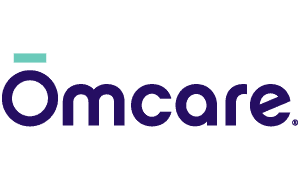

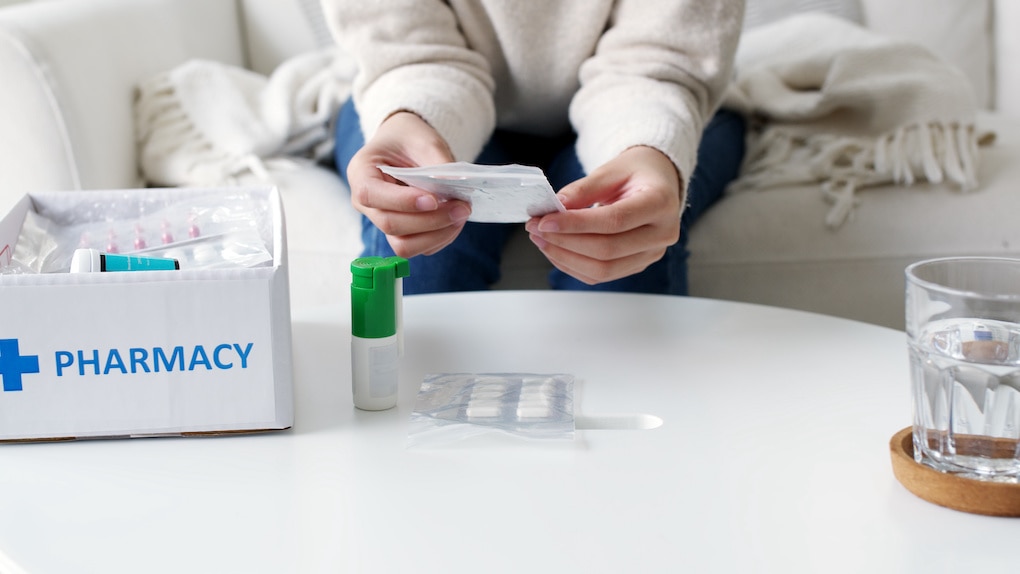
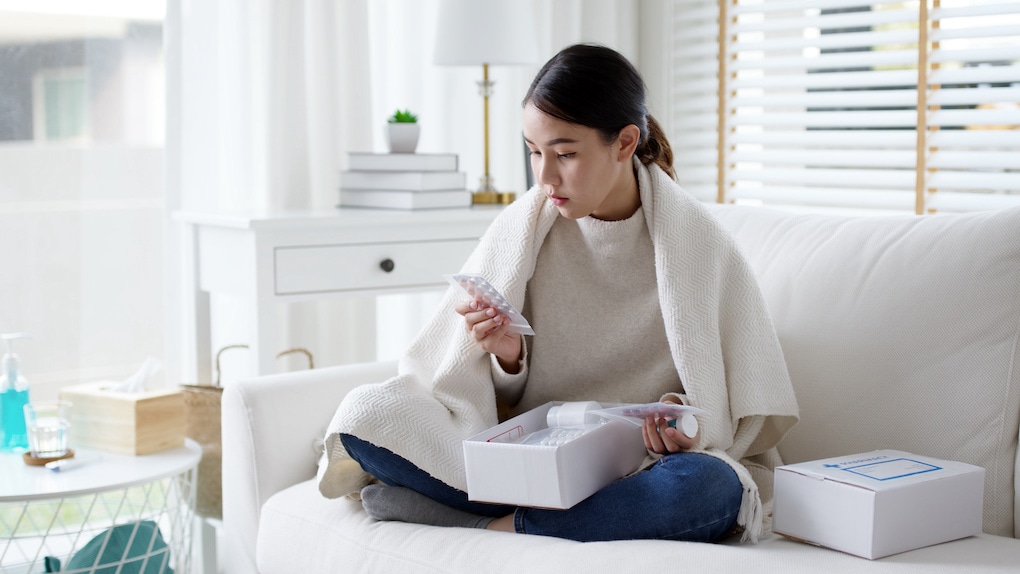
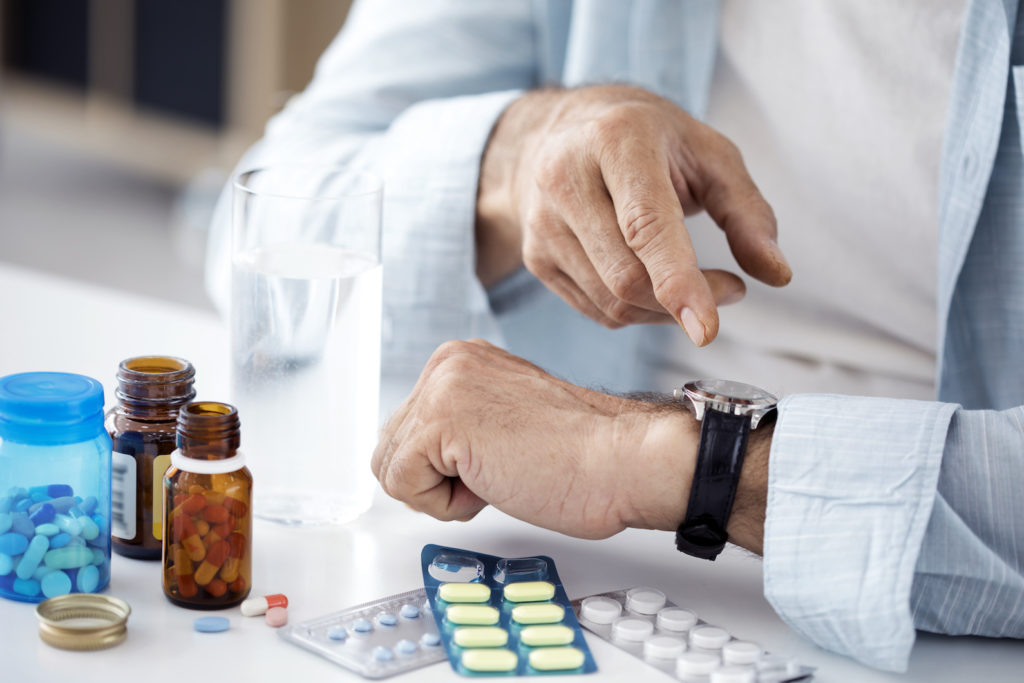 Finding the Best for You
Finding the Best for You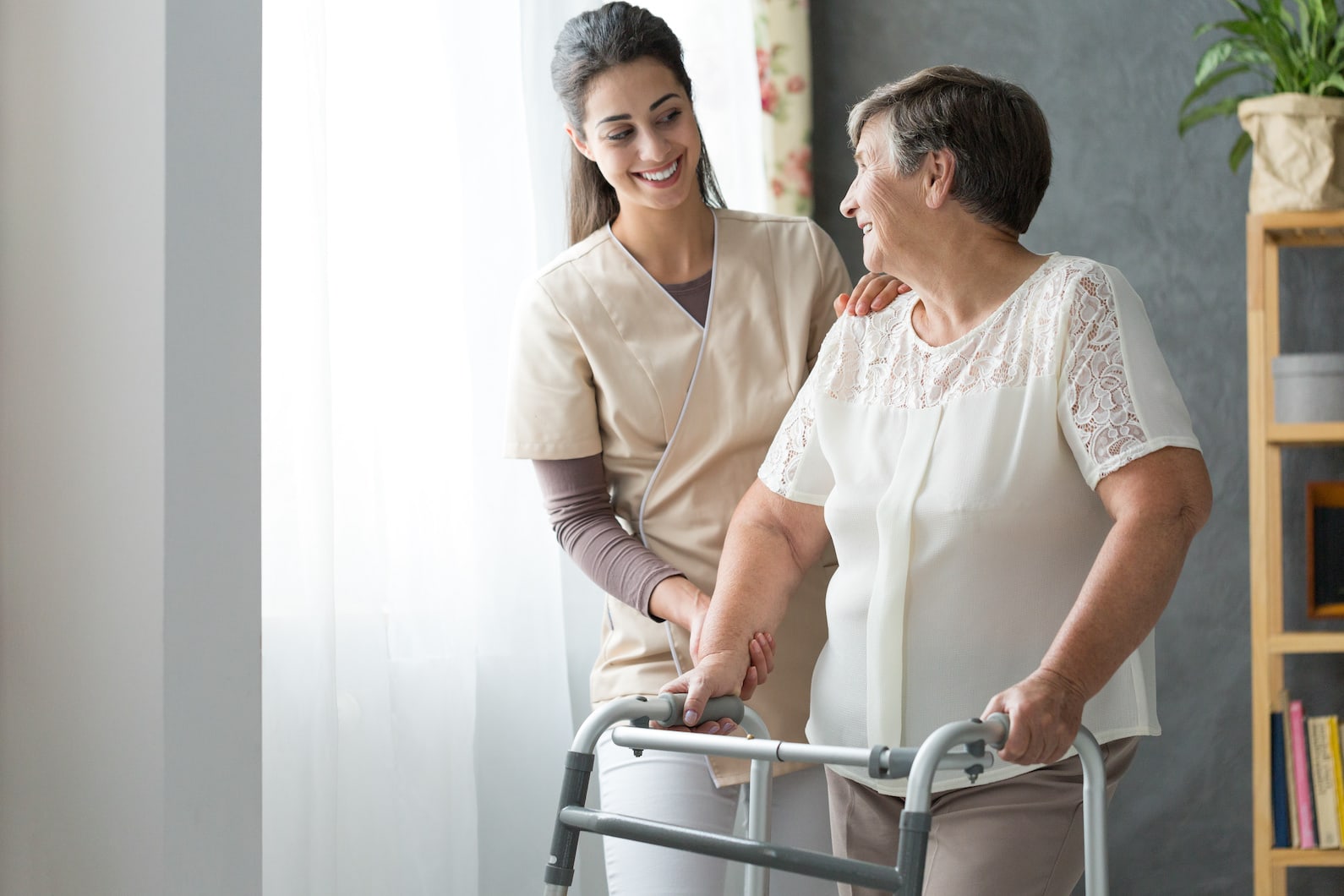
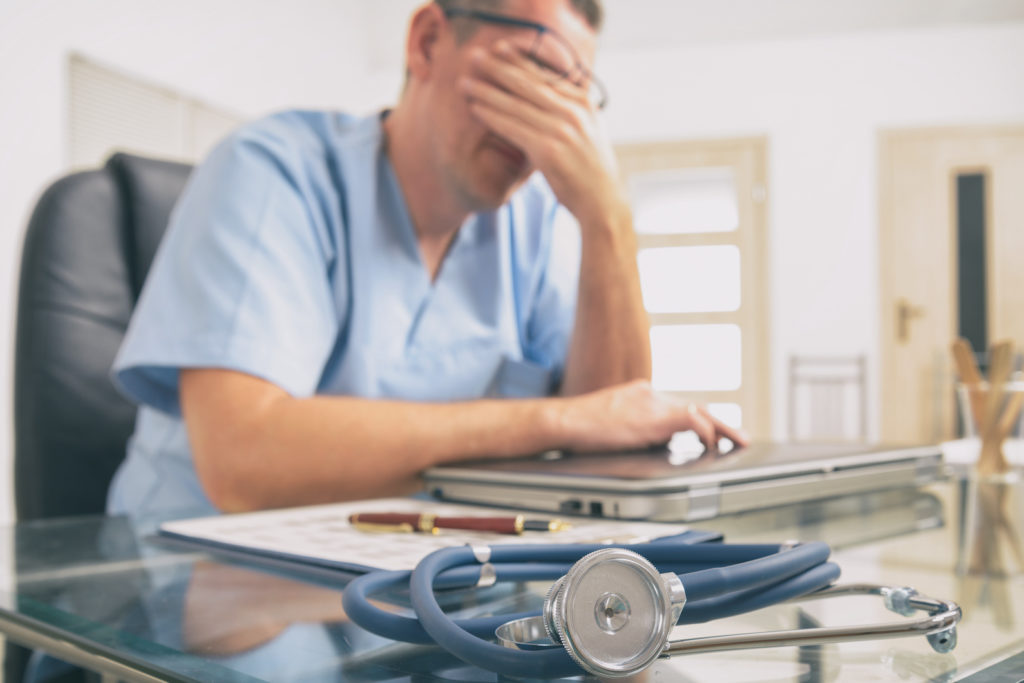
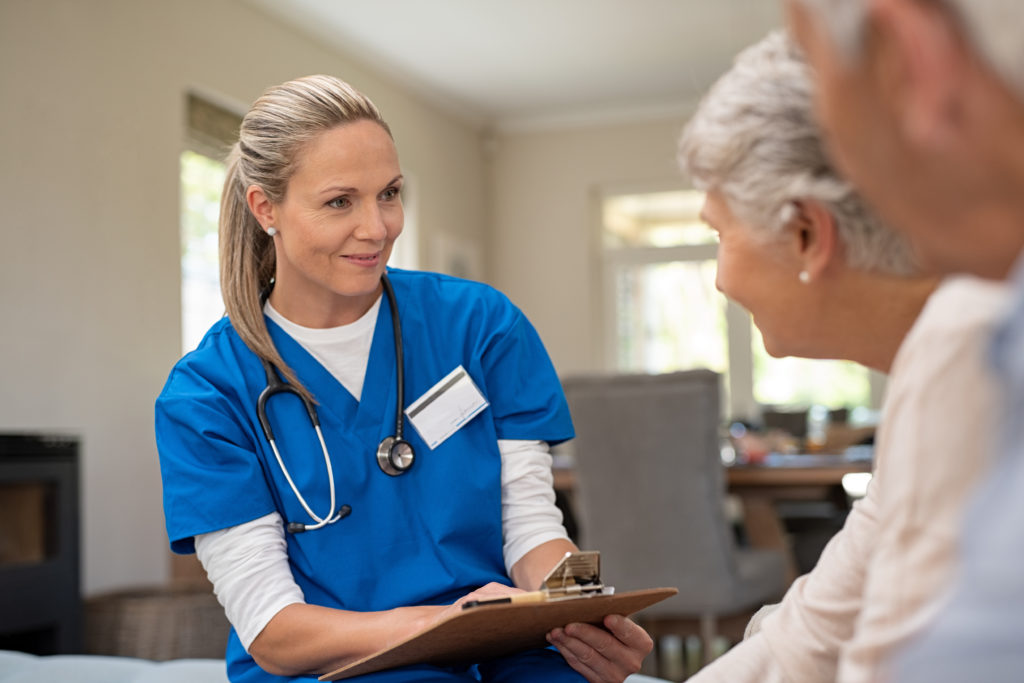

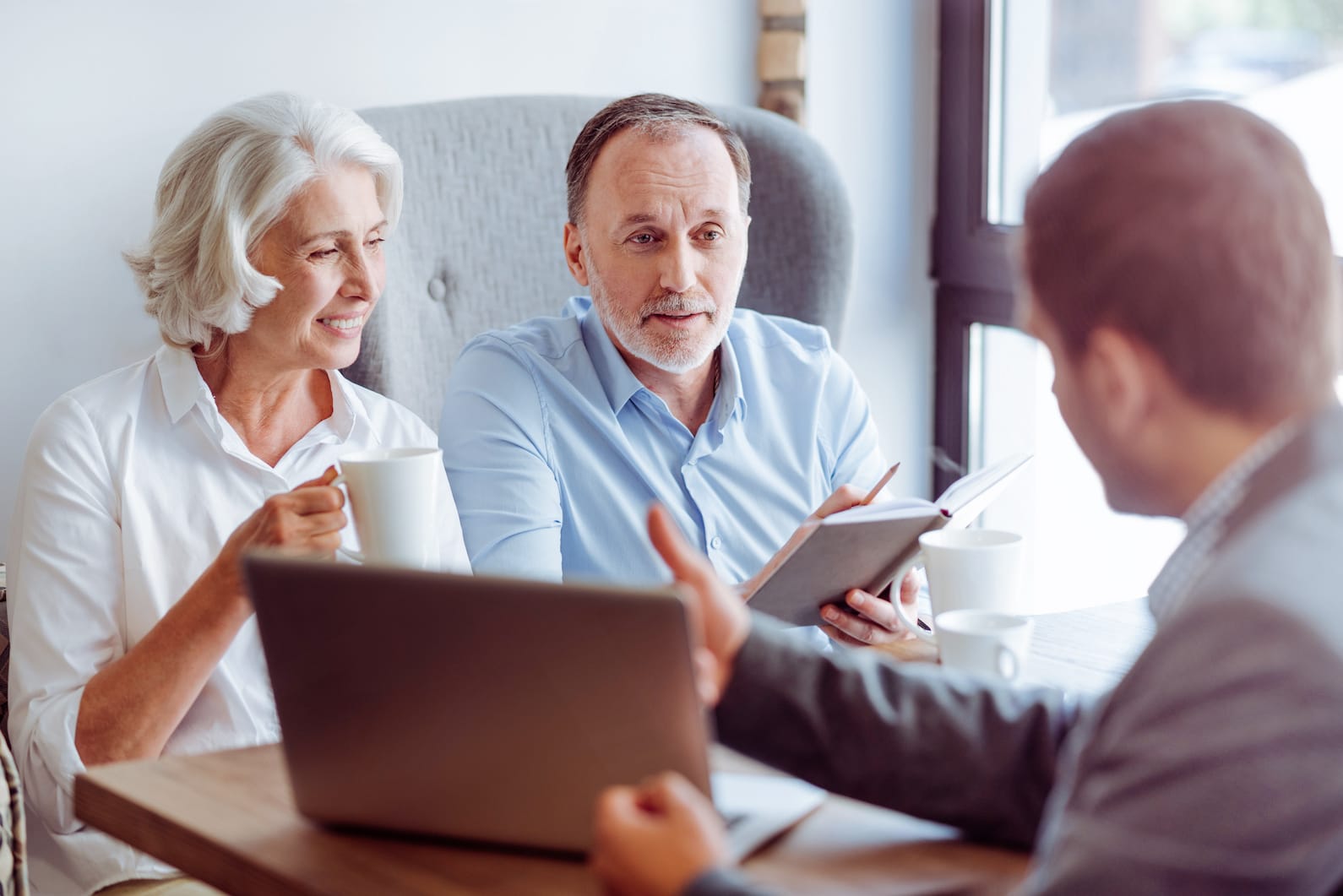
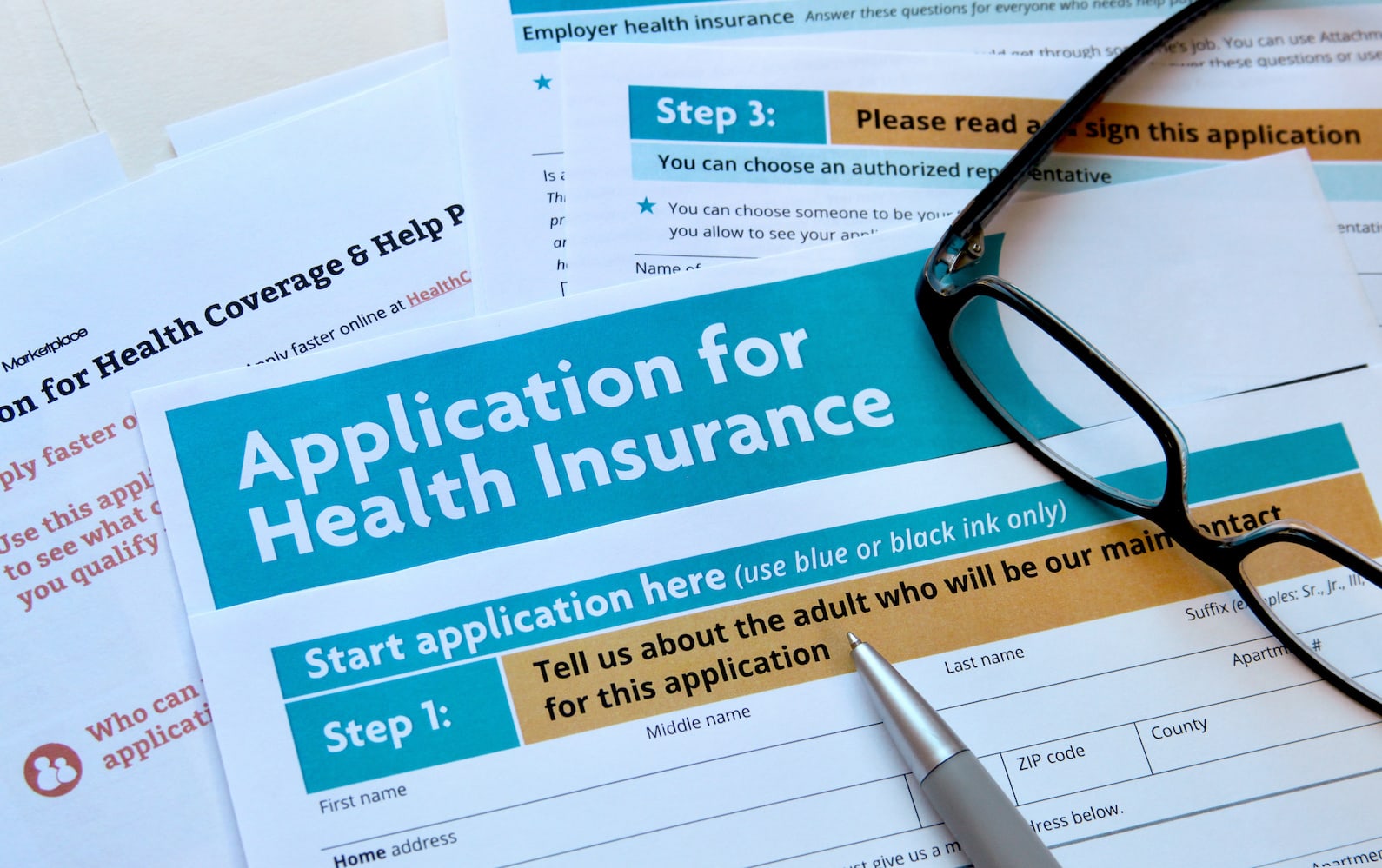
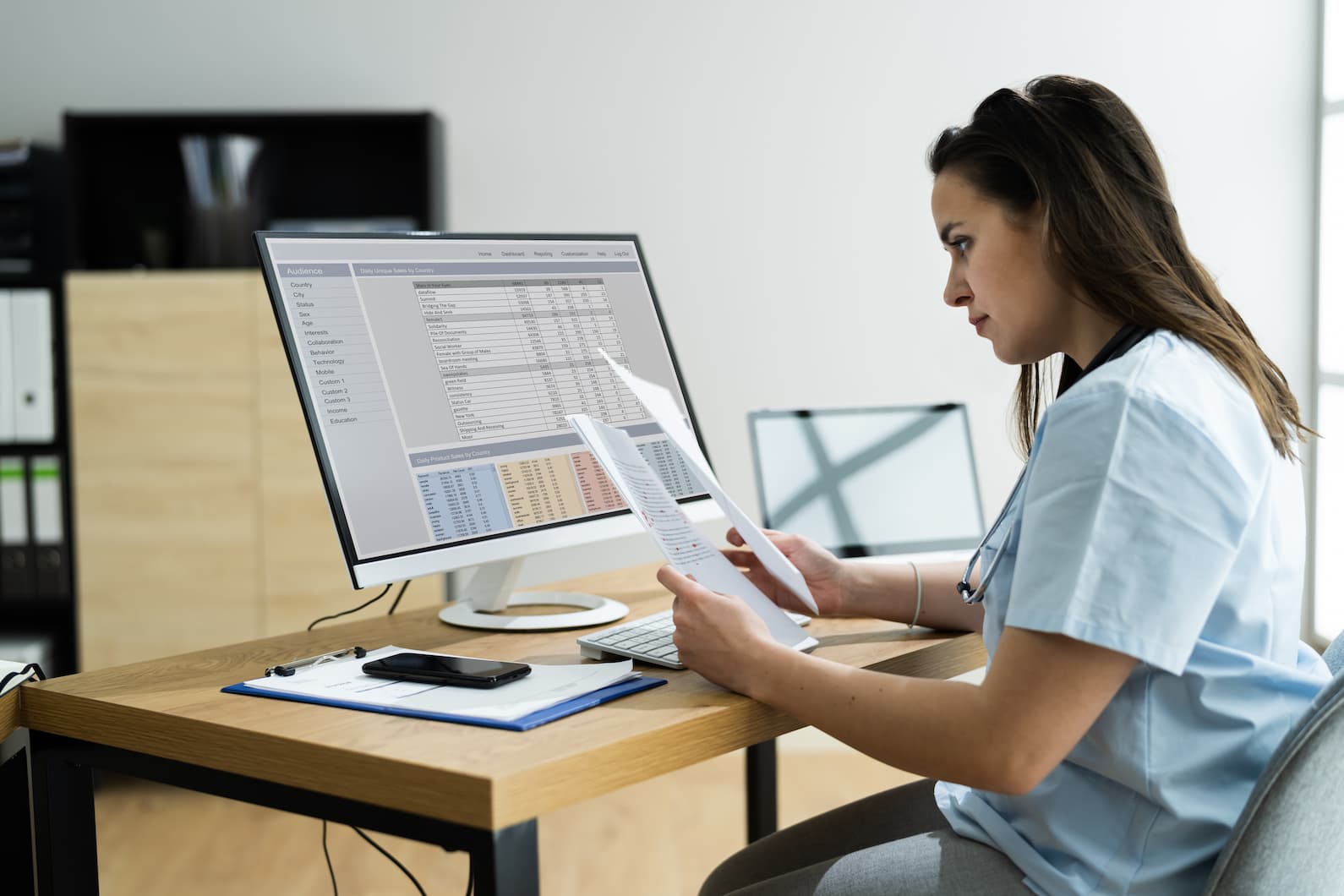
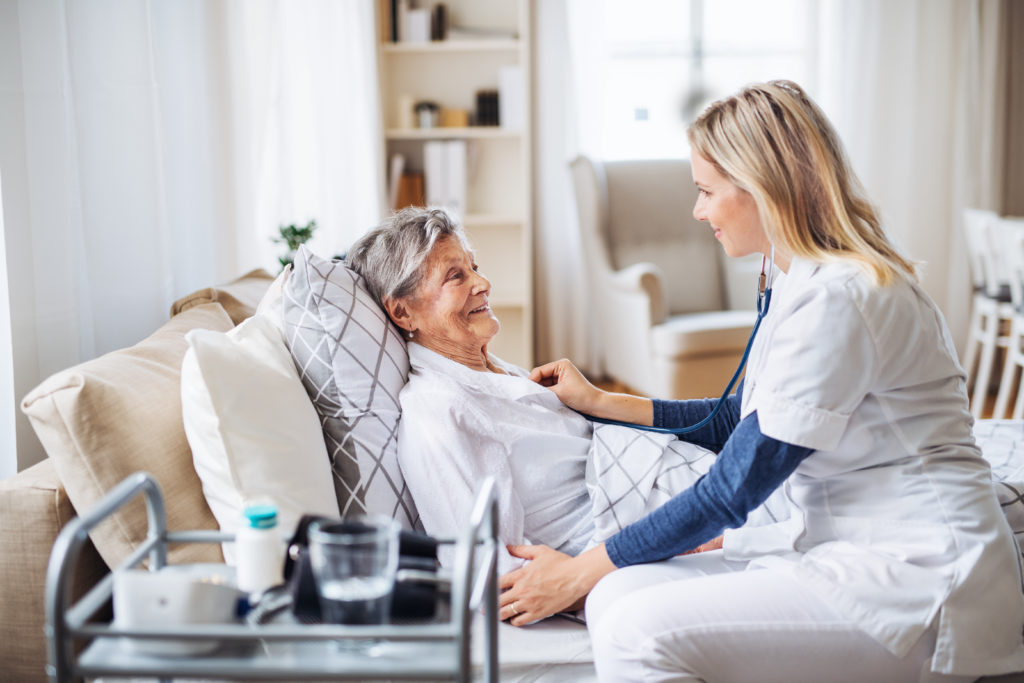 HCC — Hierarchical Condition Category
HCC — Hierarchical Condition Category Risk Adjustment and Healthcare
Risk Adjustment and Healthcare

